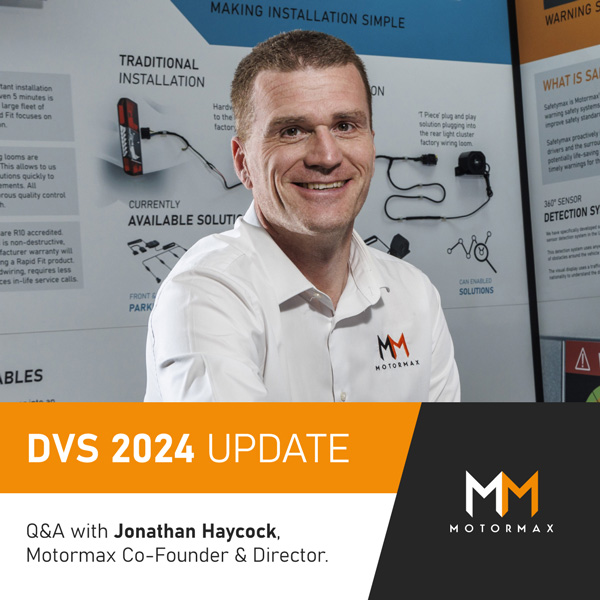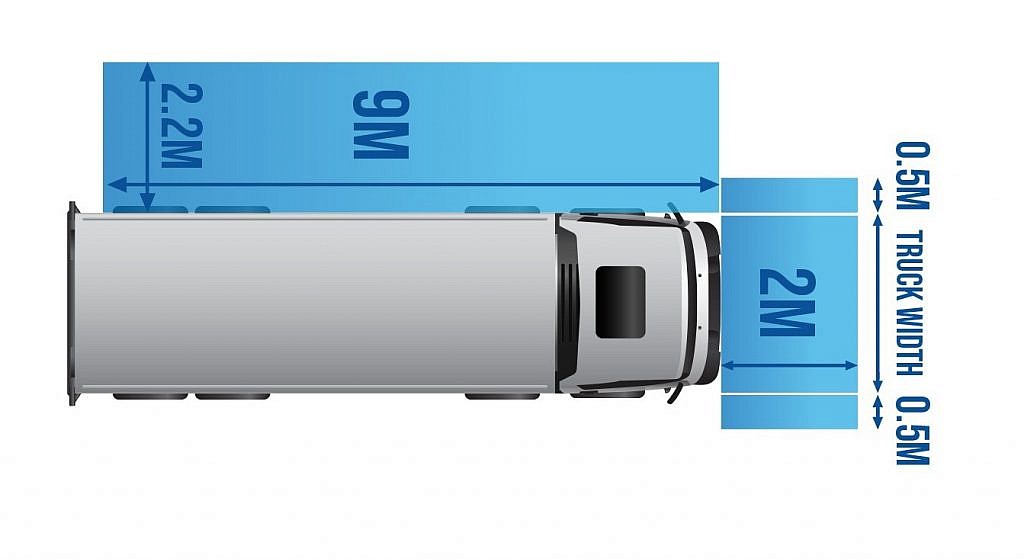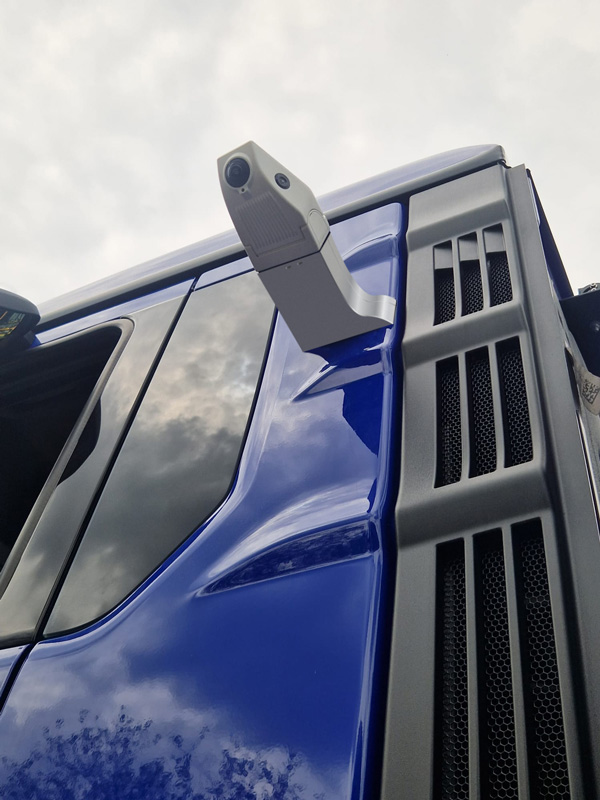
Jonathan Haycock, Director and Co-Founder of Motormax explains the key questions transport operators must ask when selecting a fully compliant Progressive Safe System to meet Transport for London’s Direct Vision Standard 2024.
WHAT IS DIRECT VISION STANDARD?
From October 28, 2024, HGVs over 12 tonnes operating in Greater London must have a minimum three-star rating, a significant increase from the previous one-star requirement for Safe System compliance. By October 2024 all vehicles must ensure they comply with the new regulations and meet the Progressive Safe System (PSS) requirements. Non-compliance could lead to a penalty charge of up to £550 per vehicle per day.
WHAT IS INCLUDED IN THE 2024 SPECIFICATION PROGRESSIVE SAFE SYSTEM?
The PSS includes Moving Off Information Systems (MOIS), Blind Spot Information Systems (BSIS), Camera Monitoring Systems, audio warnings, and warning signage.
HOW CAN I ENSURE A DIRECT VISION STANDARD PSS KIT IS FULLY COMPLIANT?
In order to guarantee the products you are selecting are compliant, you should ask your fleet safety equipment supplier the following questions;
- Have the products been tested to UNECE Regulation 151 and 159?
As stated by TfL, “Vehicles already approved to UNECE Regulation 151 and 159 are considered to have a BSIS and MOIS likely to be more effective than one designed for this specification, and are therefore treated as compliant with this BSIS and MOIS requirement”. You should ask your fleet safety equipment supplier for the relevant test report and certificate.
- Does the system self-diagnose faults?
It must be clear to drivers if the blind spot information system is not working correctly. The system should display a permanent error in the event of restricted functionality, a malfunction, (e.g., sensor failure or covering).
- Regarding MOIS, at rest, does the system offer an information-only signal?
Activation of an “information” signal is to be issued whenever pedestrians or cyclists are within or about to enter the critical blind spot area in front of the vehicle, including when the vehicle is stationary and handbrake applied. The system should not issue a collision warning if the vehicle is in the ‘at rest’ condition. This is an essential element to comply with the new regulations.
As stated by TfL “The aim is that if the vehicle is at rest (e.g. park brake applied) then it must give the information signal and must not give the warning. Otherwise, we will be back in the world where a vehicle stationary at a red light pedestrian crossing would have a constant audible warning active as pedestrians crossed in front of them while the driver was well aware with no intention of moving. Very annoying for the driver, noise becomes background to be ignored and a genuinely needed warning in some later circumstance gets ignored”.
HOW CAN MOTORMAX SUPPORT FLEET OPERATORS?
Alarmingly there are products being offered that do not meet all the criteria set by the technical specifications, so please be aware. Motormax offers UNECE Regulation 151 and 159 compliant products for BSIS and MOIS which are 100% compliant with the 2024 PSS specifications. We have consulted with TfL in detail throughout the process and we can guarantee our products meet the 2024 technical specification. The R151 and R159 test reports and certificates are available upon request. Find out more about our PSS kits.
We have trialled and tested products that do not meet ALL the criteria set by TfL, especially around self-diagnosis and at rest. TfL stated, “If a product doesn’t meet the criteria then it would not be compliant, and should any vehicle be checked, and they fail, the operator will face a fine”.
FURTHER READING
View our latest blog on our website for links to further information from TfL, or get in touch with the team to book a meeting.






